Welcome to another issue of The Newport Cornucopia where we dig through the newspapers archives for interesting news articles and adverts. All articles are posted verbatim and most headlines are original (headlines in quotes are my own).


Call a "Hansom Cab"
Numerous visitors — of the commercial and shipping interests especially — wonder that Newport has not yet been supplied with a few cabs and flys, for the public convenience. When the length of Newport is taken into consideration, and its dirty Macadamised streets are looked at, there is much reason to regret that some spirited Phillips does not start the desideratrum which, no doubt, would prove both remunerative to the projector, and very convenient to the public.
— Monmouthshire Merlin, Saturday 27th January, 1854

Malpas Mud
Sir, — Kindly allow me, through your widely circulated paper, to call attention to the disgraceful state of a public footpath through the fields below the canal, belonging to Holly Bush Farm, Malpas. It is impossible for any person to pass along it, and people have to make a detour of about a quarter of a mile as a consequence. The culverts are blocked, and the land is perishing for want of attention. The path is described as a church path, leading to Malpas Church, but anyone passing along it would be more fit for a dip in the canal than a seat in the church. The land belongs to the Malpas Court Estate. Surely the Malpas Parish Council could do something in the matter.
Yours truly,
PEDESTRIAN
— South Wales Weekly Argus, Saturday 3rd February, 1906

’He Lost His Cap’
In the early hours of Thursday a police constable was in Screw Packet Lane, Newport (which runs along the side of the canal), when he heard a splash, and on looking over the wall, saw Gustal Charlotte, a man 33 years of age, employed as a donkey-man on the steamer Skald, now lying at the Victoria Wharf, Newport, in the water. The man shouted to him for a rope, but the officer told him to swim to the wall. With the assistance of another officer, he got a ladder by the aid of which the man was able to get out. Carlotta said that he went over Newport Bridge, and, thinking this lane was the quay, he climbed the wall and fell into the water. He lost his cap.
— Western Mail, Friday 21st October, 1904

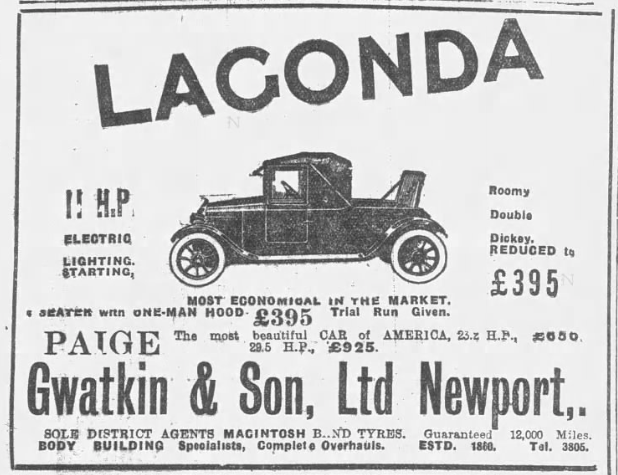

Stealing Wood
Edward Edmunds, of St Julian's Inn, Christchurch, was charged by Mr Wm Edward Stephens, woodward to his Grace the Duke of Beaufort, with stealing an oak tree, which he had cut down in St Julian's Wood.
John Lawrence, Esq., said he was in the wood on 5th of January, and met defendant coming out with a pole on his shoulder, when he asked him what he was doing there. He replied, "I have been cutting this stick." Mr Lawrence asked him by whose permission? He said, "My own." Defendant's footsteps were traced to the stump, through the snow, from which the tree has been cut. Mr Stephens gave evidence as to the value, &c., and defendant was fined 20s, 5s the value of the tree, and 14s 6d costs, or one month's imprisonment, with hard labour. Mr Pope [Reverend presiding over the case] said it was a bad case — the Duke's tenant stealing the wood. The money was paid.
— Monmouthshire Merlin, Saturday 27th January, 1854
Stealing a Piece of Bacon
Mary Crane was charged with stealing a piece of bacon, from the shop of Mr Edwards, grocer. Sergeant Lloyd said he had taken the prisoner into custody on Saturday night, and found the bacon concealed under he shawl; and Mr Edwards (who now identified the bacon) proved that prisoner was in the shop purchasing potatoes, and when she went out, he missed the bacon; and said she could think what induced her to do it. Committed for trial at the Sessions.
— Monmouthshire Merlin, Saturday 10th February, 1854
Full of Beer
Albert Holiday admitted that he was "full of beer" last Saturday, when he was drunk and disorderly at Bassalleg. The penalty was fixed at 10s and the Chairman told him if he drank less beer he would have more money.
— South Wales Argus, Saturday 1st July, 1899
'Riding a Horse at 20mph'
John Williams was summoned for furiously driving a horse and trap at Machen — PC James said the horse was travelling and up hill and down at the rate of twenty miles per hour. Williams stated that the horse was trotting; he was showing its paces. Fined 10s inclusive.
— South Wales Argus, 8th July 1899
An Excited Teetotaller
James Summers, platelayer on the Great Western Railway was summoned for riotous conduct and assaulting Alfred Pearce Jones at St Brides on June 27th. The latter said the defendant caught hold of his wife, and when he told him not to do so, Summers struck him on the ear. The latter said that Jones annoyed him by the way in which he asked him to take his hand off his wife, and as he had had a glass of beer, after being a teetotaller for several months, he got excited, and struck him. Fined 5s for the riotous conduct and 10s for the assault.
— South Wales Argus, Saturday 6th July, 1901
Sunday Drinking
John Hunt, a Castleton labourer, whose first offence it was, had to pay 5s including costs, for using profane and obscene language at Castleton on Sunday. He had been drinking. Charles Rosewell, a Cardiff dock labourer, who did not appear, was summoned for being drink and disorderly at St Mellons on Sunday. PC Stevens stated that the man was drunk, and interfered with a religious service which was being held in the Square. He used very bad language. There was no previous conviction, and a fine of 10s was imposed.
— South Wales Argus, Saturday 6th July, 1901
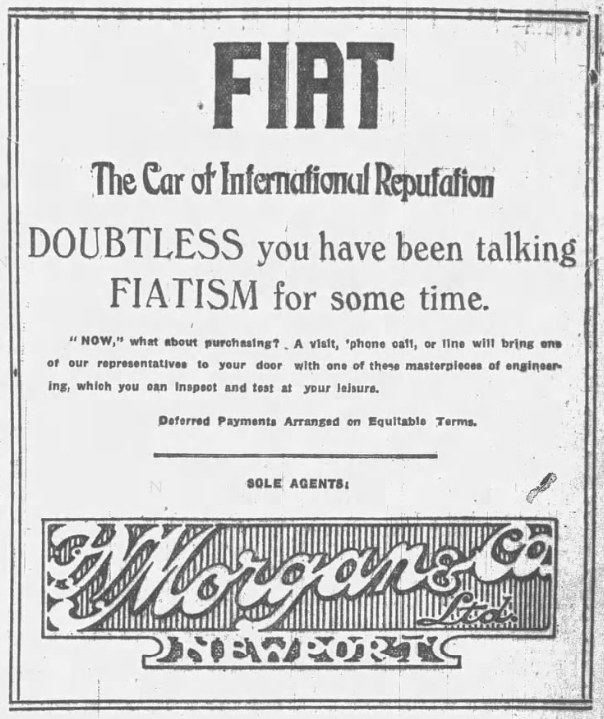
Cure for Diarrhoea
A rev. gentleman of this town, who has unquestionably proved the immediate efficacy of what he recommends, informs us that a tumbler of water, with one teaspoonful of salt, and half a spoonful of pepper, mixed, will, if taken when diarrhoea begins to be rather alarming, cause an almost immediate beneficial effect. He has tried it himself, and has known others try it, and in no case found it ineffectual in arresting the disorder. So simple a remedy, which , too, is always at hand in every house, should be generally known. Of course, full reliance on the merits of this mixture should be encouraged. Send for the doctor as soon as you become “poorly”, and, no doubt, he will be as pleased as his patient to find so simplest simple a remedy had operated favourably.
— Monmouthshire Merlin, Saturday, 14th July 1849

Newport Marine Race
Reported in the Cardiff and Merthyr Guardian on 28th August, 1852, a race was arranged between the owners of the yachts, Eulalie of Bristol and the Ganymede of Newport for £50 a side. The race was to head down the river, circumnavigate both Flat Holm and Steep Holm and return up the river.
The challenge from the owners of the Ganymede, of Newport, to the owners of the Eulalie, of Bristol, to run from Newport past the Holmes, and round a boat five miles W.N.W., came off on Saturday last. The day was beautifully fine and not much wind. The friends of the Ganymede having given her a very considerable enlargement to her spars and sails since the former run, anticipated increased speed, and in this they partly succeeded.
The vessels started soon after ten o’clock and went down the river nearly side by side, but very soon the Eulalie passed, and kept the lead, being nearly a mile ahead at the Holmes. Rounding the stationed boat the difficult work now begun in making homewards against the wind and tide, and some very fine tack sailing was shown on each side, until the Eulalie making too free with the land stuck fast, and had to be pulled off by a steamer.
The Ganymede now took the lead, but he Eulalie being freed took courage, away she went, determined if possible to win, and she succeeded, for she was first to round the winning flag, notwithstanding the time lost when aground. The Ganymede was no mean competitor, having won several silver cups.
— The Cardiff and Merthyr Guardian, 11th September, 1852

Oxen Skating
On Thursday, two large oxen got upon the frozen mill pond, near the Marshes, and created a great diversion by their antics upon the ice, previously to their being persuaded to “come ashore” again.
— Monmouthshire Merlin, Saturday 16th February, 1855

New Fire Engine Tested in Pill
Newport, is at length furnished with a fine and powerful fire engine, constructed on the most approved principles, handsomely and substantially finished, with the necessary appurtenances, the whole being very creditable to the committee of the Town Commissioners. It was tried on Thursday last, at the canal side, by the superintendent and police force, in the presence of several of the Town Commissioners, and the result was, in every respect, satisfactory. The overwhelming torrents of water forced from each side of the engine, through the hose (which is of great length) played with promptness and precision, would soon master any ordinary fire. The next consideration will be the proper drilling of the police force to act as a brigade when necessary.
— Monmouthshire Merlin, Saturday 3rd January, 1846

Does Football Lead to Sobriety?
This question has been raised in a northern town, where a magistrates’ clerk has stated that, given the weather, there is always less drunkenness in the town when the local team has a home fixture than on any other Saturday. I have not made careful observations on the point, but my impression is that Newport facts will bear out the same generalisation. As a rule men who spend to see a game do not spend, or certainly spend less, on intoxicants. The excitement of the game is more pleasurable and profitable than the excitement of the glass, and the after effects and much less disturbing. As I write there comes to me the recollection of a remark overheard in the crowd at the close of a badly played match. “Well,” exclaimed the critic, “I could have had three pints for the price of that match. That’s what I’ll do another time!”.
— South Wales Weekly Argus, Saturday 24th February, 1906
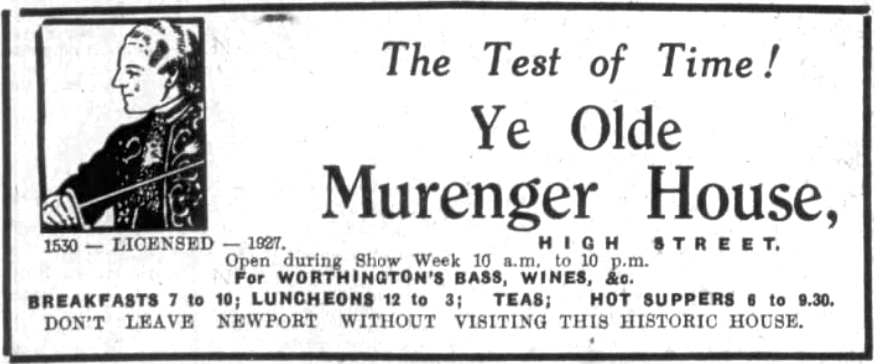
Seen and Heard
By Argus
'Empire Fully Illuminated'
As an experiment, the new Empire at Newport was fully lighted up on Friday night. The illumination was a thorough success, and the very beautiful decorations were splendidly brought out. Standing on the stage, close to the floodlights, I had an opportunity of seeing the whole of the embellishments, and my only regret was there was not a Cardiffian handy that I could have an argument with over the merits of the respective Empires at Cardiff and Newport. Mr Tetlow is a proud man, and certainly he is to be congratulated on having the management of such a magnificent theatre of varieties.
— South Wales Argus, Saturday 1st July, 1899
'Circus Runs Out of Beer'
People who do not know Newport have a way of under-estimating its capabilities. The refreshment contractors at Barnum and Bailey's show were no better than the ordinary outsiders — they thought so little of Newport's powers that they did not provide enough beer, and were actually sold out by half-past seven.
— South Wales Argus, Saturday 1st July, 1899
'Stale Drunk'
We know there are degrees of intoxication. We have heard of "staggering," "speechless," "blind" drink; but a policeman at Newport a few days ago coined a new phrase. He described a man's condition as "stale drunk". "Stale drunk" is not half a bad description. A good many men will recognise its aptness.
— South Wales Argus, Saturday 1st July, 1899
'Tennis Overcoats'
Spectators at the Welsh Lawn Tennis Tournament at Newport were rather amused by the overcoats worn by several of the crack players. It seemed funny in almost tropical weather to see them sauntering about in a kind of Arctic costume — baggy white overcoats of thick rough flannel down to their heels. One little child ran away screaming, afraid of the "white bears".
— South Wales Argus, Saturday 8th July, 1899
Rogues and Vagabonds
"Never so insulted in my life," observed a gentleman to me as he came away from the Newport Empire the other evening. "A couple of friends who were with me came out at half-time for a dr___, that is to say for a little fresh air, when the attendant at the door gave us pass-out checks inscribed 'Rogues and Vagabonds'".
— South Wales Argus, Saturday 8th July, 1899

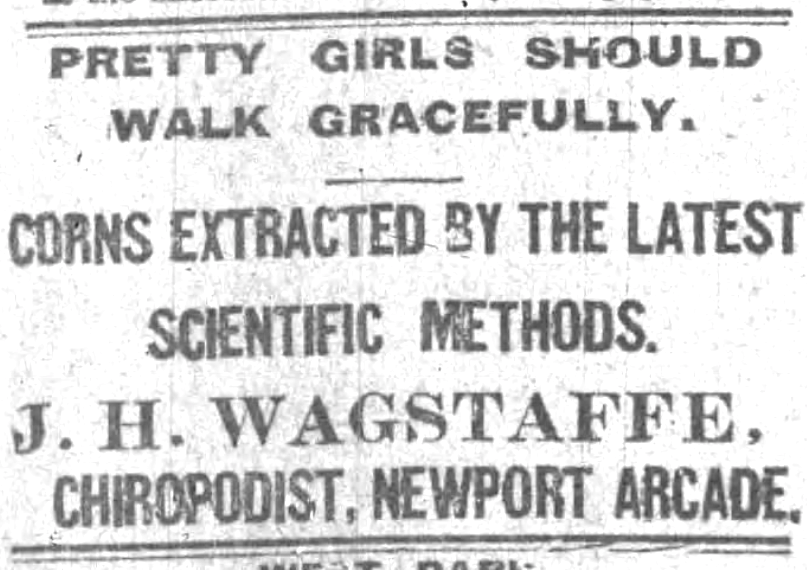
Rounding a Corner
We have private information that the National Provincial Bank, Ltd, are prepared to round off a corner of their premises in High Street and Bridge Street, if the Corporation will contribute £300. For the bank the cost will mean an additional expenditure of £1,000. This would be a great public improvement, and it is to be hoped it will be carried out.
— South Wales Argus, Saturday 5th April, 1913
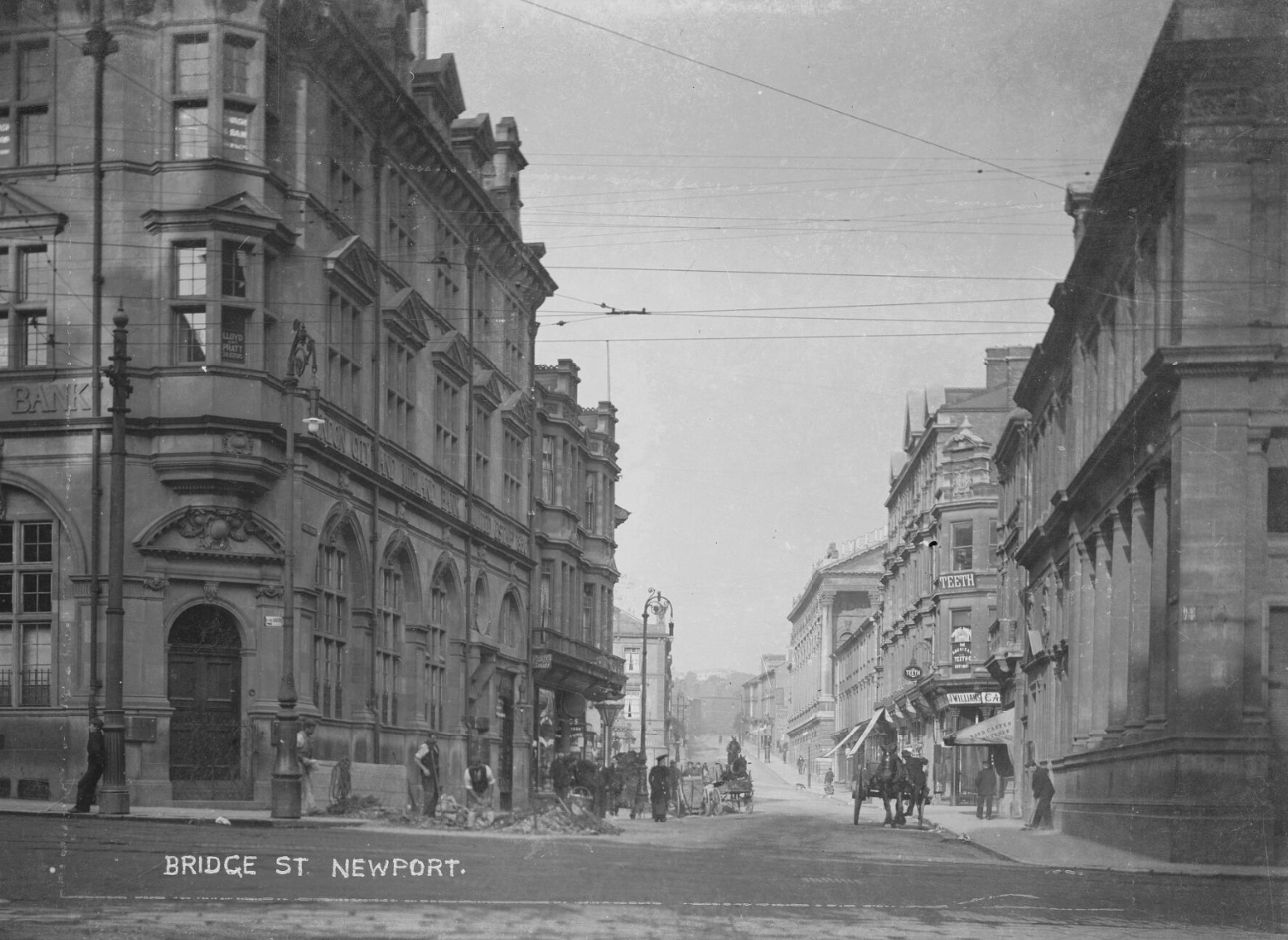
The photo above shows the National Provincial Bank on the right with the square corner and the photo below is from the present day with the corner door.
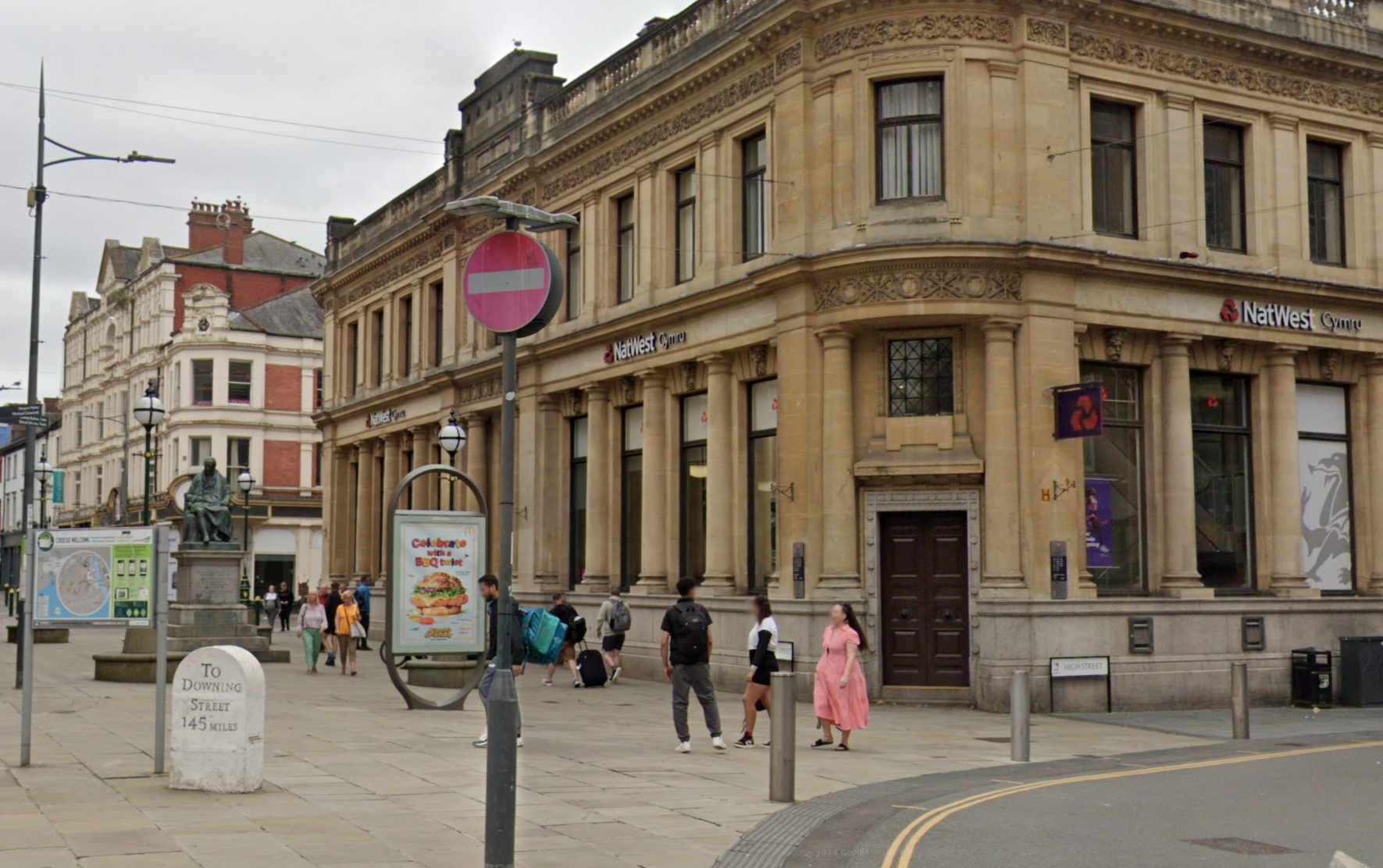
On Wednesday 9th April, 1913, a follow up report was published where the council agreed to contribute the £300 and at the same time an extension was added on the Cambrian Road side.
The corner of the building will be rounded from the ground to the balustrade and three square yards will be thrown into the highway. The extension which is now being carried out on the Cambrian Road side will be architecturally in keeping with the Bridge Street front and when the alterations are completed there will be a counter from end-to-end with entrances at the Cambrian Road corner and the High Street corner.
— South Wales Argus, Wednesday 9th April, 1913

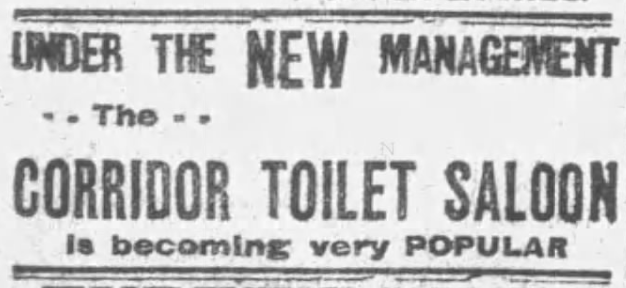


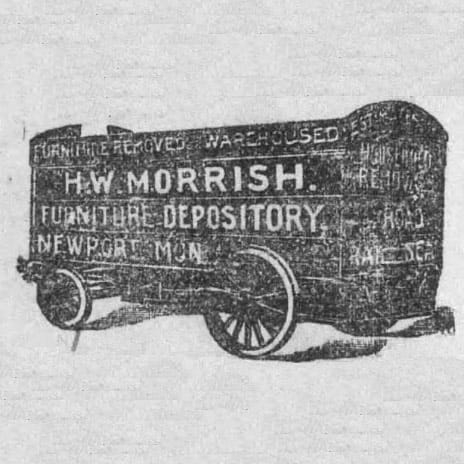






Member discussion